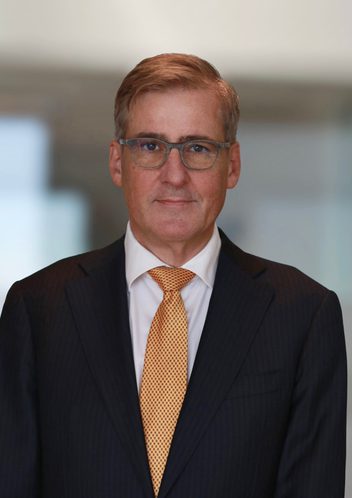
Søren Lundsgaard
Partner
Copenhagen
Newsletter
by Søren Lundsgaard, Arianne Svardal-Stelmer and Rasmus Harder
Published:
In a decision from December 2024, the Danish Supreme Court upheld the decision of the Eastern High Court regarding (non)use of court-appointed expert evidence in the ongoing case emerging from the collapse of the O.W. Bunker group.
In this case, the bankruptcy estate of an O.W. Bunker company seeks payment of approximately DKK 1.2 billion from, among others, the former auditor of the O.W. Bunker group. Inherently, such claim against the former auditor relates to matters of complex accounting and auditing circumstances. In this respect, the bankruptcy estate sought to support its claim by obtaining expert evidence from court-appointed experts. However, the Supreme Court confirmed that this request be denied, requiring the bankruptcy estate to proceed without being able to support its claim with expert evidence. As explored further in this article, this is mainly due to how the parties themselves determined the required qualifications of the envisaged court-appointed expert.
Whether the lack of expert evidence will have implications for the outcome of the case remains to be seen as the oral hearing of the case will continue before the High Court throughout much of 2025.
Under Danish law, the parties have the primary responsibility for the proof of evidence in civil court cases and, referring to the general principles of the burden of proof, it is up to the party making a claim to provide sufficient evidence to support the claim. However, where a claim relies on matters of non-legal, technical circumstances, it may be relevant, and sometimes even necessary, to seek expert evidence to sufficiently support the claim.
In arbitration cases – and particularly, in international arbitration cases – it is customary for the parties to submit evidence from their party-appointed experts to assist the tribunal on matters of non-legal, technical circumstances. However, in civil court cases under Danish procedural law, the possibility to submit evidence, such as expert reports, from party-appointed experts is highly restricted and should the submission of such evidence be permitted, the probative value of this evidence is questionable.
Instead, the measure generally applied in Danish civil court cases is to request a court-appointed expert. The evidence from a court-appointed expert is usually heavily relied on and can be decisive to the outcome of the case. Similarly, it is occasionally seen that the courts dismiss a claim due to failure to meet the burden of proof, noting that this is (partly) due to lack of evidence from a court-appointed expert.
Accordingly, in cases which proceed before the Danish courts, the opportunity to provide evidence through a court-appointed expert is often pivotal for the party making a claim.
The O.W. Bunker group was a global network of traders and physical suppliers of bunkers. The group collapsed and declared bankruptcy on 7 November 2014, which was only about six months after it had been listed on the public stock exchange.
In the aftermath of the collapse, several lawsuits were initiated with total claims for billions of DKK including the court case currently proceeding before the Eastern High Court, which was commenced on 23 December 2016. The bankruptcy estate has put forth a claim for damages of approximately DKK 1.2 billion plus interests, against several respondents, among them the former auditor.
On 23 July 2019, i.e., approximately 2,5 years after the case had commenced, the bankruptcy estate requested appointment of court-appointed experts to provide evidence on auditing matters; in its essence evaluating whether the auditor had complied with professional standards and good practice. The request for appointment was granted by the High Court on 10 July 2020.
The proceedings regarding the appointment then continued with the parties preparing and completing the themes and specific questions that the experts were to answer. Additionally, it had be determined the procedure for identifying expert candidates and the specific qualifications these candidates were to possess.
The parties agreed that FSR - Danish Auditors, which is Denmark's trade organisation of auditing, accounting, tax and corporate finance, were to suggest two expert candidates. Based on the themes and questions which had been formulated by the parties, together with the parties' submissions on the required qualifications of the experts, the High Court subscribed to that the experts had to possess in-depth knowledge of auditing consolidated financial statements of publicly listed companies, including IFRS standards.
Finding suitable candidates for becoming court-appointed experts proved difficult, partly due to most major auditing firms being disqualified as they had some connection with one or more parties of the case. After unsuccessful attempts to identify candidates, the requirements to the candidates' knowledge were lowered, and FSR was able to suggest two candidates. Both of which the former auditor of the O.W. Bunker group objected as the candidates did not possess in-depth knowledge of auditing publicly listed companies, including under the IFRS standards.
Ultimately, the High Court found that the two candidates did not possess the necessary qualifications and, accordingly, decided that the candidates were not fitting to be appointed experts, given the matter of the case and the questions that were to be answered. This posed difficulties for the timeline of the court case, as the oral hearing was scheduled to start in less than a year and it had already been postponed once due to the difficulties of finding experts. Referring to, among other, that the court case was proceeding on its seventh year, the High Court declined to postpone the oral hearing again.
Instead, the High Court decided to reverse its previous decision on appointing experts, imposing that the court case would continue without expert evidence.
The bankruptcy estate objected to the High Court's decision and was permitted to appeal the decision to the Supreme Court.
In its decision, the Supreme Court did not find reason to set aside the High Court's assessment of the qualification requirements, i.e., the requirements to the knowledge the candidates had to possess to qualify as experts. Moreover, the Supreme Court agreed with the High Court's assessment that it had proven impossible to find qualified candidates to become experts.
The Supreme Court then found that the High Court was entitled to reverse its previous decision, imposing that the court case proceed without expert evidence – despite the bankruptcy estate's request to obtain such evidence.
Read the Supreme Court decision here (Danish).
As also mentioned above, the opportunity to provide evidence through a court-appointed expert is often pivotal for the party making a claim before the Danish courts. It can even be said that, in some instances, obtaining such evidence is required for the claim to be successful. Accordingly, due consideration of court-appointed expert evidence is essential in a successful litigation strategy.
Ultimately, the bankruptcy estate has (unintentionally) found itself required to proceed with its claims against, among others, the former auditor of the O.W. Bunker group without expert evidence. This is essentially a consequence of the high-level qualifications directed by the parties themselves and lack of time available before the oral hearing. Further, it may be added that this was also due to the circumstances of the case with most major auditing firms being disqualified, which also rendered it difficult to seek potential experts in, e.g., other Scandinavian countries. However, particularly with the benefit of hindsight, it can be said that this could have been foreseen at the time of directing the qualifications of the requested experts
